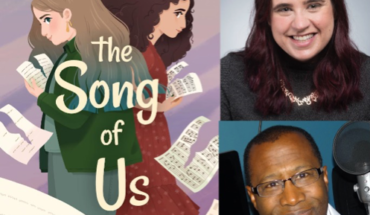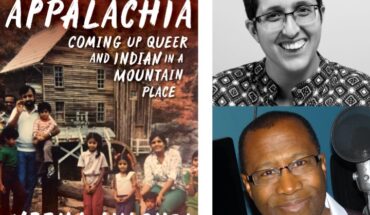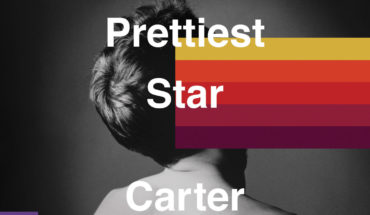For my monthly Dead Darlings post, I had planned to write about the things I’m happy I did before my book deal was announced. But then 49 members and allies of the LGBTQ community — mostly young, mostly latinx — were murdered and 53 wounded at the Pulse Nightclub in Orlando, a nightclub that was founded by a woman whose brother died of AIDS.
My most popular post on Dead Darlings is “Beyond the Closet: Writing Gay Characters.” I often wonder what it is that brought folks to that post. I can only assume that the primary audience is straight writers who are hoping to add a gay character to their narratives vs. gay writers who are curious about what I said.
I also write the weekly Friday Feast posts, where I round up some literary links for easy consumption. Last week’s was focused on Pride and LGBTQ books. The LGBTQ links were by and large ignored by the readers of the post.
I also had terrorists in my neighborhood for years. Of course, none of us knew that. But we all learned on April 15, 2013, when two brothers left two separate backpacks at the finish line of the Boston Marathon and killed 3 spectators, one MIT campus police officer, and maimed hundreds. I was not at the finish line that day. But I was told to leave my house immediately by a police officer a few mornings later. My girlfriend and I threw on some clothes and rushed down the street to her house with our two cats in tow. Whereas we usually hear the grind of tires on the street, the sidewalk singers, snippets of morning commuter conversations, we only heard the birds and the clicks of police radios. The streets had been blocked off by the police. I looked to my right and saw men in SWAT gear with their weapons trained on a house that I’d passed for years without even noticing it. We ran faster. We ran until we made it to my girlfriend’s apartment, where we holed up for the day during the mandatory lockdown. Our phones lit up with texts and Facebook-tagged messages from concerned friends and families and acquaintances who know we live in Boston. People all over the country lit up Facebook and Twitter with their concerns and thoughts and prayers for days, weeks, months after the Boston Marathon bombing. They posted photos and tributes and hashtags. I went down to Copley Square with my fellow citizens. I petted the therapy dogs and immediately felt bad for them and all of the sorrow and sadness that they must have to hold on a daily basis. I still mourn the victims and feel the sadness of that April day. It’s impossible not to. We are reminded of it by the #bostonstrong slogan that we see everywhere in this town.
Though the Boston Marathon bombers literally lived next door, I never felt unsafe in my neighborhood because of terrorism. Not before and not after.
But I feel terror when I leave the house some days. I pass as straight, but my girlfriend does not. I wouldn’t want her to pass. I probably wouldn’t be attracted to her if she could. When people see us together, there is no question about our sexuality. We rarely hold hands while walking down the street. If we do, it’s brief. Even in a state like Massachusetts, the first state to legalize gay marriage, there is not so much terror, but a low-level anxiety that accompanies me most days. The only place in Boston where I feel that I can put my guard down, whether inside or outside on the sidewalk, is in the South End, or in P-town. These are our places. These sidewalks, these restaurants, these clubs. There’s safety in numbers. There’s safety in our spaces. Or so it seemed until the events of Sunday, June 12.
The Boston Marathon bombing was and is a tragic event, one that still shakes me in terms of the violence that can be harbored in some people’s hearts. But it did not truly affect my life much beyond that one day, even though so many expressed their thoughts and prayers about it during and after.
The majority of my friends and family and acquaintances had little to say after the Pulse Nightclub massacre, which does affect me. It affects me as a member of the gay community and as a bleeding heart human being. Though Orlando is a thousand miles away, the threat feels far more real. I feel more kinship with that city than I ever have with other Americans who fear for their lives at the hands of the mostly mythical enemies found in bathrooms and airplane boarding lines. I worry about the straight males and females who find me and my community disgusting. I worry about the violence visited on my community: verbal attacks, physical attacks, online attacks, in-person attacks.
Maybe the silence is because I live in a mostly straight, mostly white city. I can’t speak to the non-white experience, but a strange thing happens when you’re an out gay person in a mostly straight community. There’s a straight-washing that happens, an other-ing. You’re gay. But you’re not someone who has experienced homophobia or has been frightened or been called a slur. Because you’re their friend. You’re someone they know. You’re not someone who anyone thinks of as threatening or disgusting to someone else because “that’s just stupid” (therefore, end of discussion). Assumptions are made about gay lives based on very male, very female roles. They no longer see us as gay, but how we fit into their binary.
Who’s the bride/groom?
Who’s the man/woman?
Who’s on top?
These are the things I hear. I heard very little on Sunday. On social media and in life, it was pretty much business as usual despite this being the deadliest mass shooting in modern American history. And on the days that followed, the words that were said and the reactions that were received — if at all — were those that were sanitized and soft and so subtle you’d have to read between the lines, mentioning not the sexuality or the race of the victims.
I’m sad. But mostly I’m angry. Anger is a response that feels far more comfortable to me than sadness. Anger keeps me safe. Anger keeps me sharp. Sadness never solved anything for me. I’m not sad that this country has a problem with gay people. I’m angry. I’m angry that we allow it. I’m angry that the discussion about the Pulse Nightclub has become about ISIS and Muslims instead of homophobia, which we breed and which spreads in this nation like an invasive weed. I’m angry that people close to me don’t have the same outrage about 49 gay people who died as they do when white, straight people die. I’m angry that they can feel solidarity with a metropolitan city across the ocean but not for gay people on our own shores.
I was cheeky in my original post. But I don’t think it gave a true picture.
If you are a straight person, and you are thinking of writing a gay character: there’s a timeline of brutality that precedes us. There’s a timeline of brutality that gay people are still living. Coming out narratives are still important. They’re still a very real part of our lives. But our lives exist beyond that initial coming out. We are constantly coming out. We are sometimes in the closet as the situation demands because it is more comfortable and often more safe.
Don’t just put gay characters in your books, read the books we’ve already written. Fiction, non-fiction, memoir. Learn about the community first. Don’t rely on the same tired and damaging stereotypes and storylines. Understand that every gay person has a context. Understand that when our LGBTQ brothers and sisters are harmed, we are all harmed. Understand how society and class and ethnicity and religion and so many other facets of a life affect gay individuals. Learn about intersectionality. If you want to write a gay character, first you need to acknowledge that we are three-dimensional human beings. Research doesn’t just include finding checklists and help guides on the internet to ensure that you’re doing it right. If you’ve never read a book by a gay author, you should analyze why it is that you’re including a gay character in your book.
We are more than your gay friends. More than characters who spice up your cast. We are hated. We are hunted. When we die, this country has a history of staying silent.




13 comments